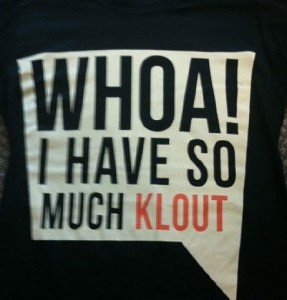 Everyone says you need a goal when engaging social media. Two years ago, when I started tweeting I had no earthly clue where my journey would take me. As a public relations practitioner always seeking the next trend, technology, or new practice, I had to launch into Twitter because everyone was talking about it. My Facebook page is relatively young, but it’s growing, and I need to give it more TLC.
Everyone says you need a goal when engaging social media. Two years ago, when I started tweeting I had no earthly clue where my journey would take me. As a public relations practitioner always seeking the next trend, technology, or new practice, I had to launch into Twitter because everyone was talking about it. My Facebook page is relatively young, but it’s growing, and I need to give it more TLC.
It took me awhile to earn my stride and slowly my goals took shape. It was never to monetize; after all my products are my words, strategic counsel and educating the profession and business about my passion (PR, if you haven’t guessed by now).
My goal was to be an influencer. There have been so many blog posts written about influence. What exactly does that mean? In my opinion, I like to think it’s authoritative, authentic and accessible leadership.
Let me explain a bit; there are influencers who encase themselves in their glass houses and rarely respond to tweets or questions posed on a blog or Facebook. These people are inaccessible. Being authoritative comes with seasoning. Having an opinion and presenting it genuinely implies authentic authority. Blogging allows for opinion, and comments create accessibility to the blogger. Being authoritative could also be considered arrogant, and that’s not a positive characteristic.
And then came Klout. I have only looked at my score 3 times ever; most recently over the weekend because someone mentioned scores were rising after Social Slam. I had a score of 52, and this weekend it is 60. It says I am an influencer, and that means I have attained my phase one goal.
What’s interesting about Klout is the detail and quantity of information available about your social media activity. I have not heard of anyone putting emphasis on Klout scoring for people hunting for a gig or being considered for a speaking position, have you?
But the more people jockey for position in social media and claim expertise, I’m thinking Klout is going to have greater influence defining who the influencers truly are. Will this become an authentic rating of the influencers? Should it?
I haven’t looked at others’ Klout analytics and I don’t know if I can dissect the data for other people as deeply as my own analysis, but this score may just become the defacto measurement system to separate the wheat from the chaff.
Here are some thoughts for you:
1. What are your professional social media goals?
2. What is your Klout baseline (your score prior to working on increasing it?)
3. Examine your social media behavior; do you ping from blog to blog and comment excessively?
4. When you blog, are your topics focused and do they command any comments? It takes awhile to find a voice; it’s helpful to have a year of blogging before things take off.
5. Are you active on Facebook or do you refuse to let social media control your every waking hour?
6. Is your Twitter stream littered with topics and Tweeps who don’t advance your goals?
7. Are you following a disproportionate number of Tweeps compared to followers? I was just introduced to Tweepi; it’s a wonderful tool to weed out those you followed who did not follow you back.
8. Have you latched onto a rising star and are you retweeting their content to your stream?
9. Is the content you publish from tweets to blogs and comments authoritative rather than just a few words in reply?
10. At the end of the day are you being you?
You may regard much of this as bunk, and it very well may be; however when I see an analytical tool that can track my online behavior that also points to places I may improve, it is certainly worth more than a passing nod. If, that is, your goal is to become an influencer.
(Image: SocialFresh)





